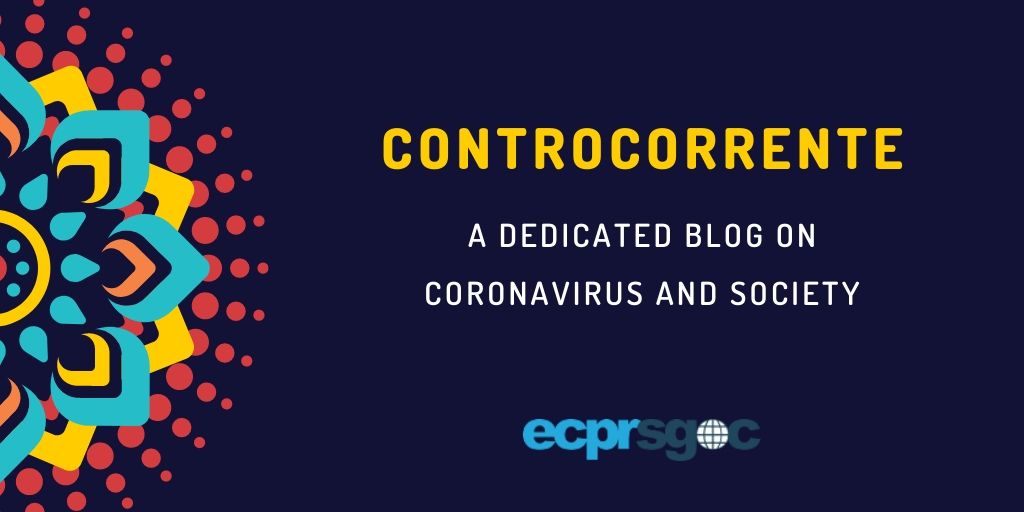
Covid-19, Europol and humankind
Prof. em. dr. Cyrille Fijnaut
KU Leuven
In the last few weeks newspapers all over the EU have spent quite a lot of time reflecting upon on the possible impacts the rather severe policies national governments have adopted to contain the spread of the coronavirus, have and will have on crime. The related reports focus in particular on the potential consequences of the stay-at-home orders, the reintroduction of controls at internal borders and the stopping of international air traffic. Inadvertently, they demonstrate in a detailed manner the extent to which these problems are embedded in the highly organized and at the same time, highly fragmented and vulnerable society we live in.
It is rather self-evident that journalists not only refer to the decrease of burglaries and the increase of domestic violence but also to the constraints on cross-border organized, white-collar and professional crime: the production and the distribution of illegal drugs, human smuggling, large-scale car and e-bike theft, trade in illegal small arms, VAT-fraud a.o. Equally all sorts of cybercrime pass in review, like the skimming of financial support schemes and the scams in relation to pharmaceutical products and protective equipment. The Italian Mafia (to the extent it operates in Italy in itself and not e.g. in Germany), is the great eye-catcher. On the one hand, the reader gets stories about the abuse mafia groupings make of the economic downturn by enlarging their loan-sharking practices in local business communities and on the other hand, they are treated to stories about how mafia groupings distribute food to the residents in “their” fiefdoms and in this way, they strengthen their control over residents and districts. And, to conclude, a quite remarkable story published by The Guardian, stating the mugging of NHS doctors and nurses to steal their identity badges because these badges give free access to food and drinks in a number of high street chains.

In the meantime, Europol has published its assessment of the impact of Covid-19 on crime in the EU. ‘Pandemic profiteering: How Criminals exploit the Covid-19 crisis’. In a structured manner, it presents an overview of the many ways in which criminal groupings are adapting their illegal activities to the anti-pandemic policies in (the member states of) the European Union. A comparison between my collection of press reports and this assessment demonstrates that – apart from violent criminal behavior and ordinary forms of theft – it reflects what is really happening in the context of the “corona-crisis” and in this sense is a helpful instrument for governments to adapt and to strengthen their criminal policy measures in order to contain this dark side of the crisis as much as possible. At a first glance the reference to terrorism in this assessment looks a bit thin but happily the report states that the impact of the current crisis on the threat from terrorism, in particular IS, has become limited, not to say: nihil. More important therefore is the warning, based on clear examples, that left-wing and right-wing violent extremist groups will try to exploit this crisis to reinforce their own ideological narratives.
It is of course not within the mandate of Europol to lead the debate about the Covid-19- crisis and crime at a more fundamental level, but it is the obligation of everyone who follows the scientific discussion on the causes and the impact of previous and future pandemics and epidemics to do so. In my own personal “safe house” I have come to the conclusion that it is long overdue for us to reflect and to act worldwide on a number of fundamental issues. At the top of my to-do-list is the termination of the destruction of our natural habitat and the termination of the factory farming of all sorts of animals. In conjunction with these fundamental issues, it has become inevitable to redistribute the economic wealth among nations in a much more even way and, parallel to this, to strengthen the democratic quality of governmental structures in many parts of the world. All this can in the long run only be achieved within the framework of a United Nations that is able to fulfill its mandate in relation to peace and security. And in the short run this means that the states which dispose of veto power in the Security Council do not use this power anymore in their own interest, to begin with in the Syrian conflict.
13 April 2020.
***
This blog aims to reflect the opinions, thoughts, and concerns of academics and researchers related to COVID-19. All views belong to authors and it does not represent the views of any organisation.

